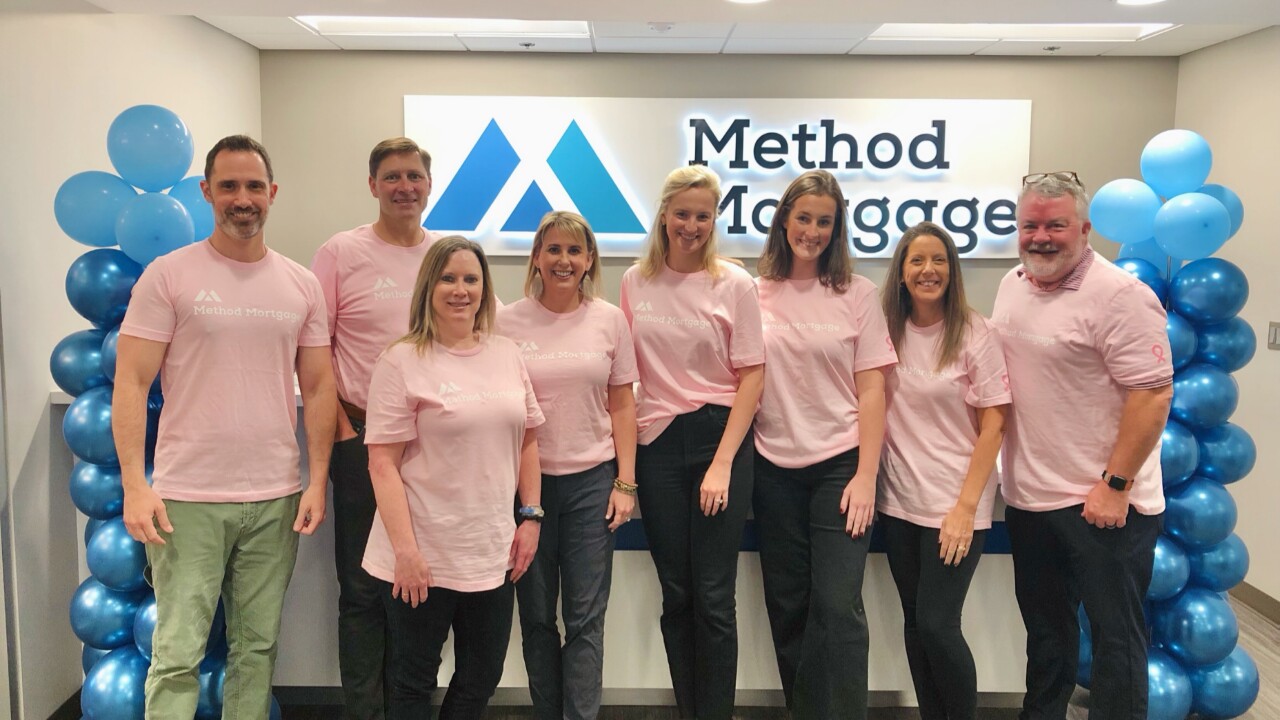This is one of the aspirations the organization is pursuing as part of its legislative agenda for 2022, said McCoy, a Mobile, Ala., broker who describes herself as all-too-familiar with the frustrations involved in trying to help entry-level borrowers obtain mortgages to buy lower-priced homes.
It’s a conversation that could hold broader importance for the mortgage industry as lenders increasingly turn to the third-party originators to expand their outreach to home-purchase borrowers as refinancing wanes, adding to the impetus to serve a wider range of consumers.

The association also is renewing its calls for more leeway in limits on certain types of broker compensation that its members say have discouraged the origination of small loans under the qualified mortgage definition.
McCoy also is hopeful that growing familiarity with trigger leads in the hot housing market will finally lead to legislators to put a simple limit on the sale of borrower contact information obtained from when credit histories get pulled as part of the mortgage process.
What follows are excerpts from that conversation, edited for clarity and length.
What legislative and policy issues will be top of mind for the NAMB in the coming year?
We also would still like to see something done about trigger leads. Those continue to be a problem for consumers. When any loan officer takes an application, one of the first things they do is pull credit, but once they do, the credit bureaus know because it's tagged as a mortgage lead. So immediately the credit bureaus sell these leads to other mortgage lenders, banks, trigger lead companies, etc. Once the lead is sold, the consumer generally receives a phone call or some other method of communication regarding their mortgage application. Since these leads cost money, you get a high-pressure salesman on there who can be very misleading. A lot of times they confuse people by saying they are with the company that originated the credit pull and they are gathering additional information in order to provide the borrower with a pre-approval. That’s not true, and it makes people think that they're receiving a call from the office of the original loan officer they worked with when they’re not. What we would like to see is something done about that because customers who know and trust us will think they're talking to somebody in our office, and then they get their credit pulled again.
It's very confusing and we feel like the solution would be a limitation placed on trigger leads where a consumer opts in to have their information shared as opposed to today’s process of opting out. The process could be similar to a borrower affirming the acceptance of electronic signatures. The borrower could check a box at the time of the initial credit pull that they are allowing the information to be shared. People should have the right to shop but know what they’re getting into when they do, and not have their information distributed without their consent.
We're hoping that we're going to get some traction in D.C. this year. We do feel like something will get done. We talked to several members of congress.
Has the hot housing market called more attention to the trigger lead issue?
What was NAMB’s meeting with Sandra Thompson like?
How could brokers do more to help fulfill affordable-housing policy goals?
Government-related programs for low-to-moderate income borrowers don’t always get shared with brokers by lenders. Also, brokers may find it challenging to make
The Consumer Financial Protection Bureau has a carve-out for small creditors. Small creditors play an important role in the mortgage industry because they generally try to maintain ongoing relationships with customers in a single community. The small mortgage broker business is generally the same and should be afforded some flexibility, particularly with regards to lender-paid compensation being included in the 3% points-and-fees cap.
Brokers can get above a break-even point if a loan is maybe $150,000 depending on their business model and costs. Brokers might even be able to go down to $100,000, but I get calls every day from people who want to buy houses in the $60,000 to $80,000 range. Occasionally, they are looking at a home with an even lower price point. Sometimes I can't help those people. I could send them to the banks but it’s unlikely they're going to spend the time to help those people. So it's a numbers game. We want to be able to help those people. It’s why I opened up my own business. Every now and then, we’ll help someone even though it costs us money to help, but if I did it all the time I’d be out of business really fast. We could help so many more people if we had a carve out.





